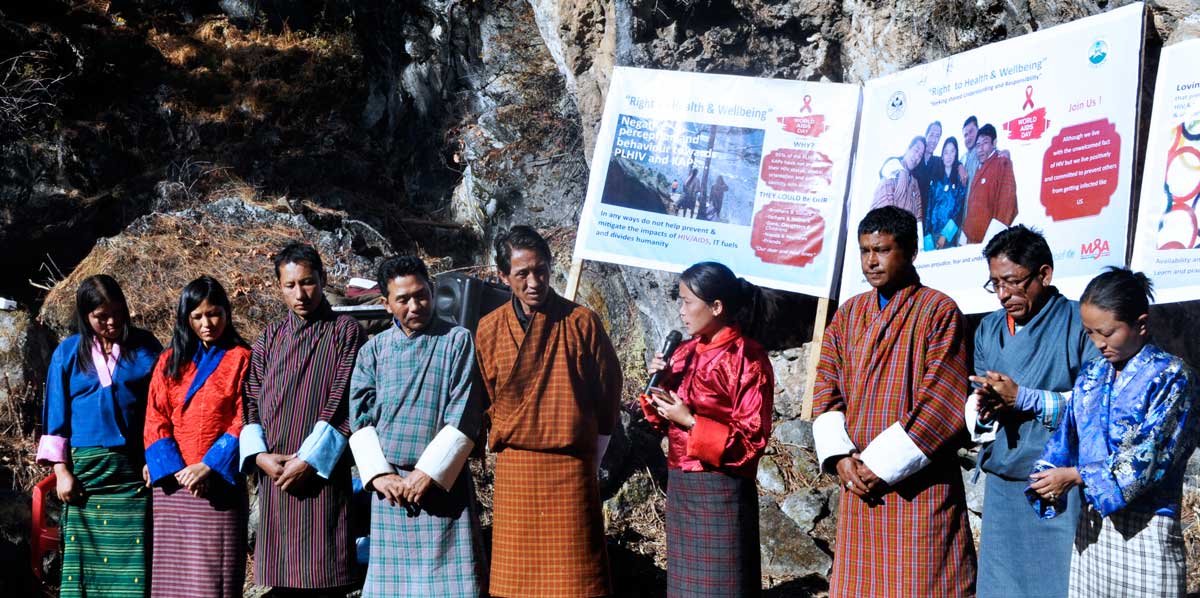Ensuring Resource Mobilization and Sustainability

Sustaining the organization’s day-to-day operations and securing its long-term viability requires effective resource mobilization, capacity development, robust partnerships, and optimal resource utilization.
Operating as a civil society non-governmental public benefit organization, we heavily depend on external resources; primarily grant support, which constitutes 95% of our funding. The challenge lies in tapping into local funding from Bhutanese society due to the nascent stage of private companies’ growth and their limited capacity to fund our projects. Moreover, corporate social responsibility and corporate commitment to societal welfare are currently lacking. Adding to this challenge, the Global Fund, a major long-term supporter of HIV and AIDS initiatives in our country, has progressively decreased its allocations with each grant cycle. Additionally, Bhutan’s transition to a low-middle-income nation in 2023 has prompted the funders to shift their investment. The absence of domestic financing often attributed to insufficient political will, further compounds the issue, jeopardizing the progress made in combating HIV/AIDS and undermining our efforts at Lhak-Sam.
Nonetheless, our dedication to the battle against HIV/AIDS remains unwavering, thanks to the collaborative efforts of our partners and stakeholders across different levels, along with the generous contributions from our donors. Despite these challenges, we are determined to succeed, with our partners playing a crucial role in implementing our strategies and agendas, and involving us in planning HIV/AIDS response . Their unwavering support enables us to deliver effective prevention, care, and support services that curtail HIV spread, ensure treatment adherence, and save lives.
In addition, our successful mobilization of funds through grant proposals submitted to relevant partners and donors is pivotal in implementing critical interventions. While these partnerships will persist, it’s noteworthy that not all partners allocate budgets for administrative costs, and the few that do impose stringent criteria on operational expenses. Hence, securing Lhak-Sam’s long-term operational sustainability and core program continuity necessitates meticulous strategic planning and innovative approaches.
To this end, we’ve launched an ongoing membership-based voluntary contribution campaign, encouraging individuals to contribute Ngultrum 100 or more monthly through the Bank Standing Instruction Form. This initiative has managed to cover 50% of our monthly operational costs. Interested participants can complete the form in person through our office staff, online registration via our website, or in-office visits. Our goal is to enlist 10,000 individuals, enabling us to distribute contributions across (1) bridging operational gaps, (2) supporting prevention and advocacy initiatives, (3) providing care and assistance, and (4) establishing an endowment fund to secure and perpetuate our response to the HIV/AIDS crisis.
Furthermore, a key element of our long-term sustainability plan involves enhancing our semi-automatic Super Compressed Interlocking Earth Hollow Bricks manufacturing facility at our Livelihood Centre in Ganeykha Gewog. With full utilization, this machinery can offer employment opportunities to 30 disadvantaged individuals while generating a sustainable income stream for our organization.
Moreover, ongoing discussions between the government and key populations regarding a government social contracting mechanism hold promise for sustaining our response, should they be successfully integrated by the government. The findings from the 2023 study on the efficiency, impact, and sustainability of essential HIV services for priority key populations indicate the imperative of quadrupling resources to achieve the 2030 goal of eradicating AIDS. This underscores the need for more active involvement of key populations in their communities’ HIV response.
However, it’s vital to acknowledge that our organization currently lacks a comprehensive fundraising strategy, sufficient human resources, and the capacity to effectively explore and harness diverse resource avenues, including online platforms for resource mobilization.
